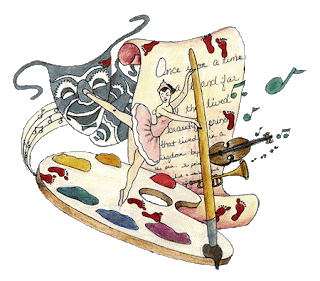
Life happens. We "get comfortable" with our surroundings, accustomed to how our lives inevitably play out, and sometimes, we mess up. It is our human nature to make mistakes, to do things without thinking, and to be irrational. No one goes through life like a superhero, coming out unscaved and rising into the air with a golden aura glowing around them. Well, as "cool" as this mental picture may be, life isn't that easy and things aren't always perfect.
It's okay that we make mistakes. This is part of life and we cannot avoid it. However, we must strive to live our "best lives" possible and to set a good example for others. Life is a stage and we are the actors. We are being watched by many audiences, whether we like it or not. Now I'm not talking about being the victims of C.I.A. investigations or telephone tapping. Let's not get too paranoid here. I'm talking about being watched by our children, the age group that is perhaps the most responsive to their surroundings as they are learning the most "life lessons" from others due to their progressive state of development. Children are like sponges, retaining everything they hear and see. Not only do they take notice of adult's actions, but these experiences stick with them for the rest of their lives. This common societal complex shouldn't scare us and shouldn't make us shy away from children.
Rather, this complex should make us more careful of how we act around our children. We have to constantly be "on-guard", monitoring what we say and do and how the little ones perceive us. Often times, actions speak louder than words. Parents can say just about anything, but "walking the walk" is ultimately what children are concerned with. During childhood development, a child's senses are almost always turned on, just waiting for the next stimulus to respond to. We have to make sure that they are taking in positive examples of how to live a good life.
The same is true for teachers. Students react to the demeanor of a teacher, whether they are aware of it or not. If Mrs. Q is having a rough day, snapping at her students, and giving up on tasks because of her frustration, the students will sense this. Bad attitudes can hinder the development of individual students, a classroom, and a school. Teachers wonder why their students are acting a certain way, saying inappropriate things, or misbehaving in class. They (and all adults) are constantly searching for quick-fixes to these problems.
The truth is that any behavior a student exhibits was most likely learned, at least to some degree. Changing our own behavior can serve as a form of intervention, having a huge impact on the student and young people as a whole. Sometimes, we really have to examine our own personalities, inadequacies, and negative tendencies in order to properly provide effective means of support for our children. So ask yourself, how can I improve "me" today? Even by working on one quality, we can make huge progress.





